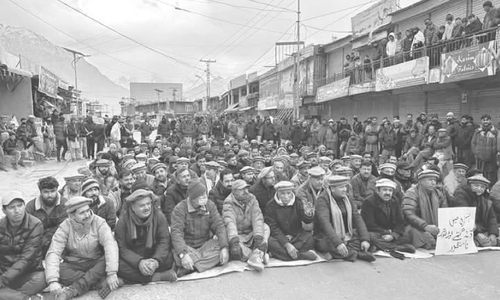LONDON: The bombs that went off this weekend in Ahmedabad and Bangalore, killing dozens of people who happened to be passing by the bicycles and tiffin boxes in which these devices were planted, are a worrying reminder of the ethnic and religious tensions tearing at the fabric of Asia’s largest democracy. The choice of the targets appears ironic, for Ahmedabad was the birthplace of Gandhi, while Bangalore has become the shiny symbol of a new, high-tech India.
Ethnic, religious and social tensions have always been present in India. Partly they are a legacy of partition in 1947, which left behind a huge Muslim minority whose discontent seems to be growing. But while Indians today turn the spotlight on radical Muslims as the agents of this weekend outrages, talk of a “war being waged against India”, coming from the chief minister of Gujarat, the state in which Ahmedabad lies, is unhelpful. India is not “at war”, not yet by a long chalk. But there is no doubt that terrorists of various sorts are becoming bolder and more violent and are moving from border states like Kashmir, Punjab and Nagaland towards the centre.
When India’s commercial capital, Mumbai, suffered bloody bombing outrages in 1993, that event still had a freakish quality. No longer. A look of at the list of bombings since 2001 reveals two clear trends: the intervals between each blast are fast shrinking, while bombers are increasingly hitting “soft” targets in the heart of the country. The spring blasts in Jaipur, one of India’s tourist jewels, were indicative.
While the threats to India are multifarious, and include a large and decades-old Maoist insurgency, concern is bound to centre on the growing trend towards Hindu-Muslim alienation. This is especially evident in tense states like Gujarat, where the twin factors of Hindu chauvinism, represented by the governing BJP, and Muslim radicalisation are combining to deadly effect. There is a dangerous legacy of religious hatred in Gujarat following the slaughter of about 2,000 Muslims in 2002 and the point blank refusal of the BJP state government to investigate this carnage.
But whether or not Gujarat erupts now in another bout of sectarian violence is not the whole point. The unfortunate fact is that secularism and tolerance face broad challenges in India, while the terrorists have demonstrated that no city is out of their reach. The task facing the authorities, therefore, is to meet that challenge without further alienating the country’s worried, and in some cases, angry, Muslims. In difficult times, India must not give up its laudable struggle to hold a wide range of ethnic and religious communities within one national fold.
—Dawn/The Independent News Service













































Dear visitor, the comments section is undergoing an overhaul and will return soon.